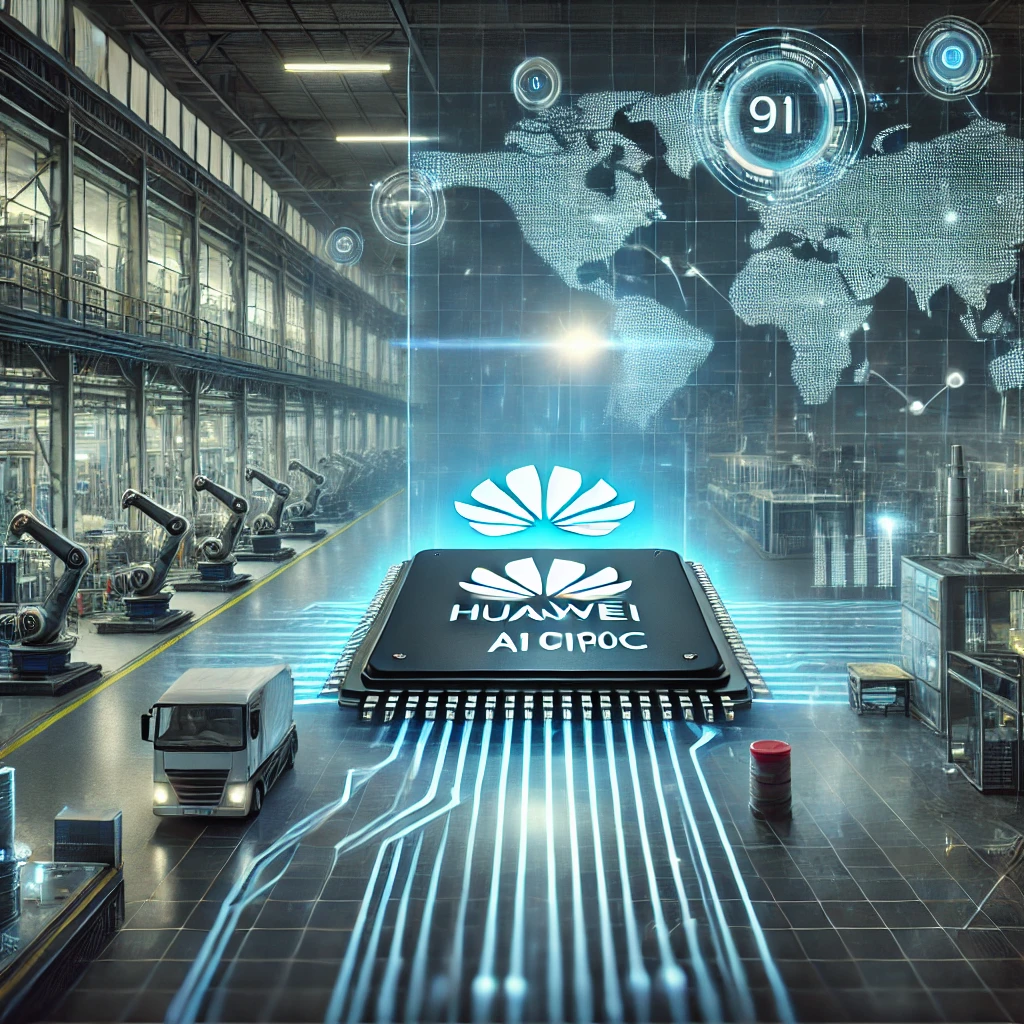Huawei, China’s tech giant, is forging ahead with plans to mass-produce its most advanced artificial intelligence (AI) chip, the Ascend 910C, by early 2025. Despite facing significant challenges from U.S. trade restrictions, the company aims to rival leading players like Nvidia in the global AI chip market.
The Ascend 910C: A Bold Move in AI
Huawei’s Ascend 910C, designed to compete with Nvidia’s AI chips, represents a major step in China’s efforts to achieve self-reliance in semiconductor technology. The chip is engineered for high-performance AI applications, ranging from machine learning to advanced analytics.
What We Know So Far:
- Current Status: Huawei has sent samples of the Ascend 910C to select technology firms and has begun accepting pre-orders.
- Production Timeline: Mass production is expected to start in the first quarter of 2025.
- Overcoming Challenges: U.S. restrictions have limited Huawei’s access to cutting-edge chip-making equipment, forcing the company to innovate domestically.
The Bigger Picture
Huawei’s push to develop and mass-produce its own AI chips is part of a broader strategy by China to reduce reliance on U.S. technology. The move highlights the growing competition in the global semiconductor industry, particularly in the race to dominate the AI chip market.
Challenges Ahead
While the Ascend 910C represents a technological leap, Huawei faces significant hurdles, including supply chain disruptions and pressure from U.S. export controls. How the company navigates these challenges will determine its success in competing with established players like Nvidia.
What This Means for the Industry
Huawei’s advancements underscore the intensifying rivalry in AI hardware development, with implications for both the tech industry and global geopolitics. If successful, the Ascend 910C could position Huawei as a formidable competitor in the AI chip market.





